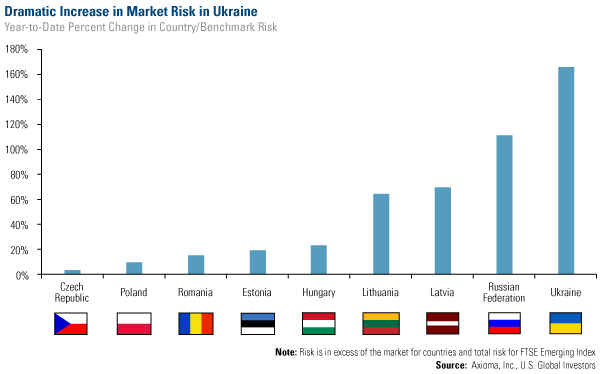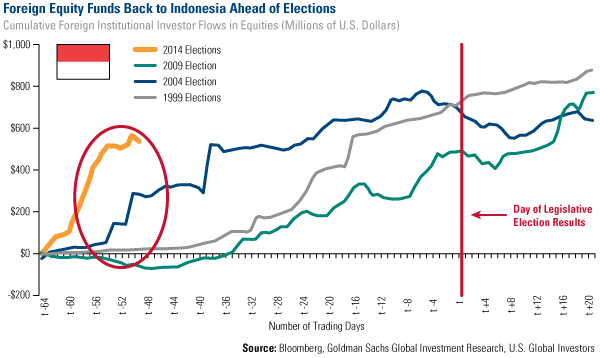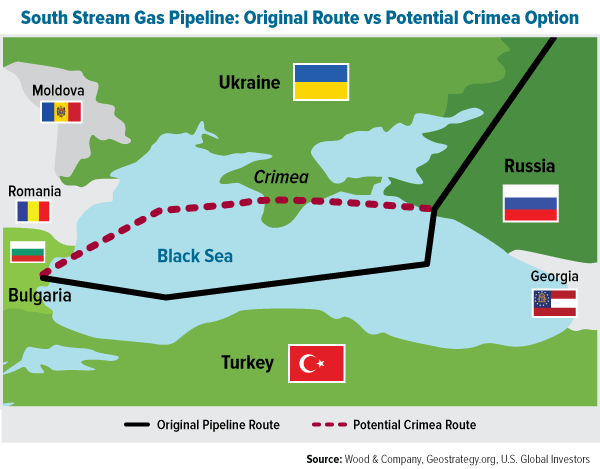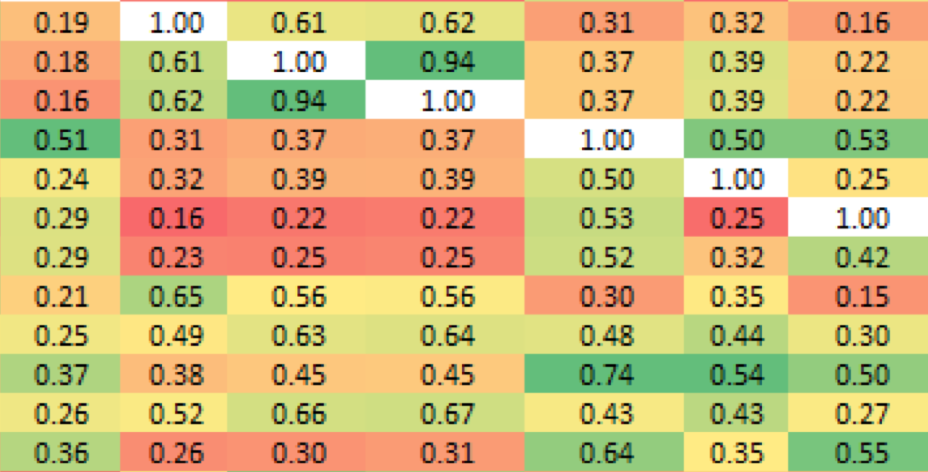Emerging Markets Radar (March 17, 2014)
Strengths
- Turkey’s current account deficit narrowed to $4.9 billion in January from $5.8 billion a year earlier as a weaker lira boosted exports. The reading surprised analysts who estimated a deficit of $5.3 billion. The deficit is expected to keep narrowing in coming months as a weaker lira boosts exports, and lower consumer confidence curbs imports.
- Greek stocks broke through the 1,350-point barrier this week, bringing the index to a 34-month high as banks and financial services scored the highest gains. The recent strength is a result of the latest round of stress tests performed by the nation’s central bank and BlackRock showing Greece’s four big banks will need less additional capital than initially expected to meet minimum capital ratios.
- Jakarta Governor Joko Widodo, with a solid track record as a local policymaker, won his party’s nomination as a presidential candidate for Indonesia. The Jakarta Composite Index has rallied 23 percent since its August 2013 low, and the Indonesian Rupiah is trading around a four-month high.
Weaknesses
- Events in Ukraine have had a clear impact on the overall region’s risk profile. Yet, positive stock market returns in some of the neighboring Eastern European markets show the Russian market appears to be bearing the brunt of the rush to sell. The chart above highlights that the market risk impact following the events in Ukraine has been largely contained to the two countries involved in the conflict. Latvia’s and Lithuania’s risk have risen as a result of their close proximity to Russia, and the significant size of their Russian-speaking populations.
- Russia canceled a Treasury bond auction on Wednesday for the second week in a row arguing unfavorable market conditions. Developments in Ukraine have sent the ruble to all-time lows, which usually coincides with higher inflationary risks, and deters investors from buying into Russian Treasury bonds.
- Year-over-year growth in China’s exports, industrial production, fixed asset investment, and retail sales for January and February combined surprised the market on the downside, triggering the worst weekly selloff in Hong Kong’s Hang Seng Composite Index since May 2012.
Opportunities
- Equity fund inflows to Indonesia from foreign investors rose consistently for months ahead of the parliamentary and presidential elections in the last three election years, and 2014 is no exception with $1.7 billion inflow year-to-date. Given global emerging market fund managers’ still neutral exposure to Indonesia, and incipient macroeconomic improvement in the country after last year’s currency crisis, odds favor a continuation of outperformance from Indonesian equities.
- Industrial production in Brazil rose 2.9 percent in January from the prior month, beating analysts’ expectations of a 2.5 percent rise. The January reading is the single-largest uptick in at least a year, and highlights the possibility that Latin America’s largest economy may finally be approaching a trough.
- Despite industrial output in the 18-nation eurozone weakening in January, countries in the 28-nation European Union (EU) but outside the eurozone fared significantly better and pulled the EU’s industrial output into positive territory. Eastern Europe is home to most of the EU members that are not eurozone members. Countries outside the eurozone that recorded the highest increases in industrial production were Romania (10.5 percent), Poland (6.4 percent) and Hungary (6.1 percent).
Threats
- Russia’s significant dependence on Ukraine for gas exports has long been a source of friction between the two countries. As a result, Russia has been diversifying its supply options through the South Stream pipeline. As shown in the graph above, Crimea may prove to be crucial for reducing the astronomical costs of the project as both depths and distances could be reduced substantially. In addition, annexing Crimea may offer Russia access to the major part of the explored offshore gas deposits and prospective hydrocarbon resources in the Black Sea.
- With Russian stocks down over 15 percent year-to-date and the Russian ruble depreciating over 10 percent, billionaires in Russia risk further losses as market volatility and the threat of western economic sanctions draw down reserves and lead lenders to make margin calls. As a result, Russian stocks may see further downside in the coming days as the balance of risk versus reward has not yet tipped into favorable territory.
- Weaker-than-expected macroeconomic data from China, along with sporadic anecdotes of corporate credit defaults and seemingly higher tolerance of lower growth from Chinese policymakers for the sake of structural reform, may sustain the negative sentiment towards Chinese equities in the near term.















